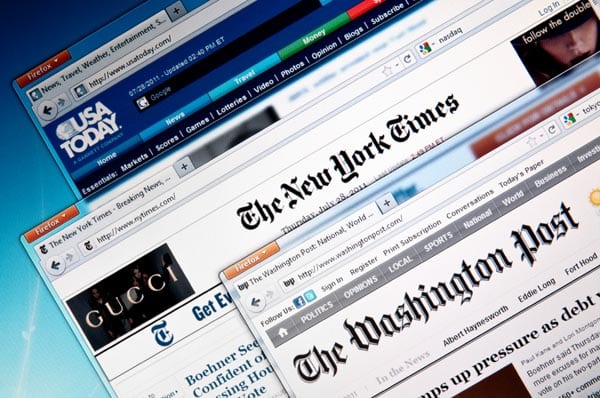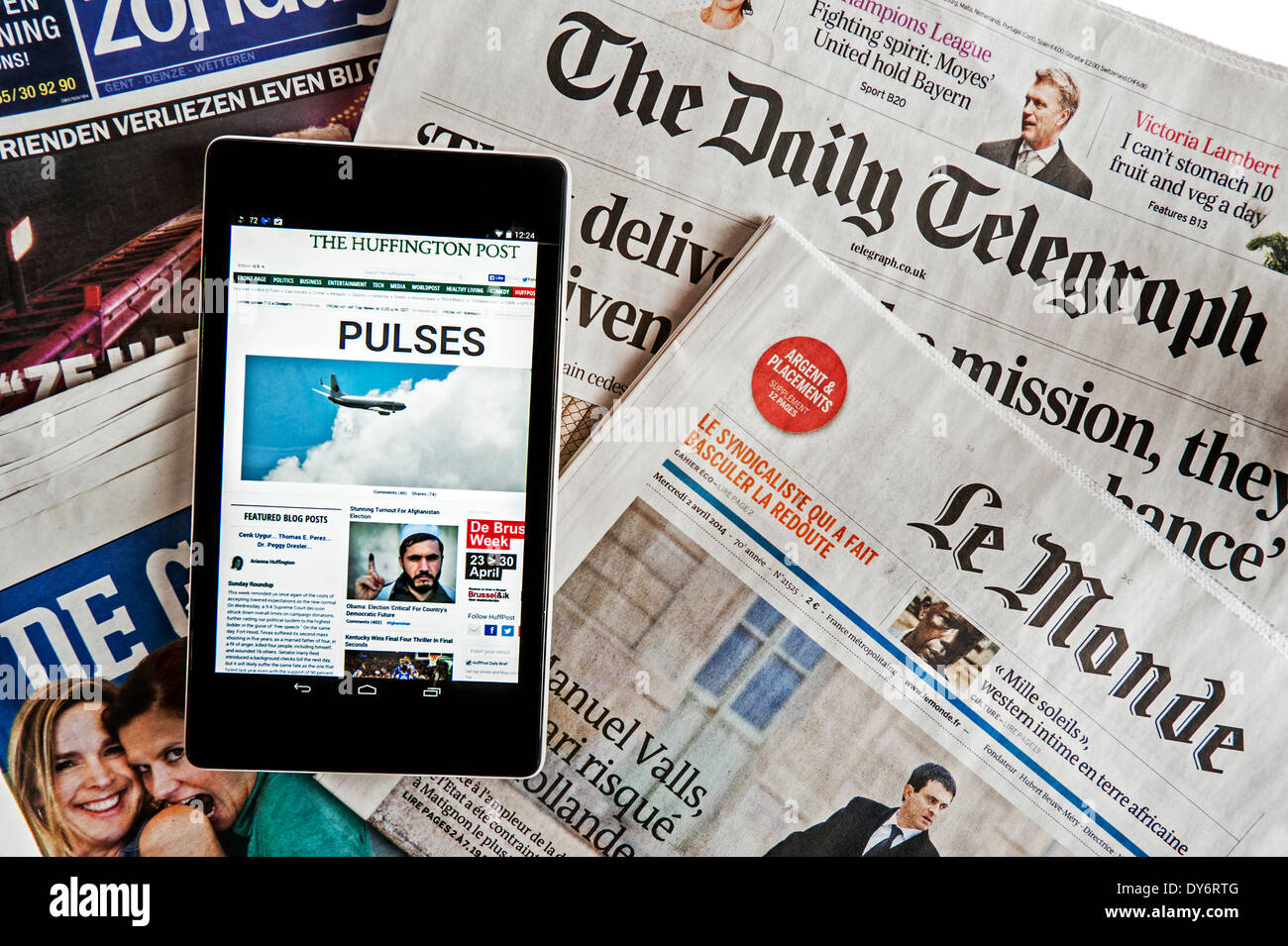The Future of Digital News Through stnews.live
Wiki Article
The Value of Fact-Checking worldwide of News Online
The frequency of misinformation in today's on-line news landscape has gotten to worrying degrees. Fact-checking organizations play an essential function in neutralizing this trend. They confirm claims and boost the credibility of journalism. Nevertheless, the efficiency of these organizations typically pivots on their methodologies and public understanding. As audiences navigate this complicated atmosphere, the effects of their searchings for may shape the future of news usage and trust fund. What does this mean for the stability of details relocating onward?
The Rise of Misinformation in the Digital Age
How has the introduction of electronic modern technology added to the spread of misinformation? The quick development of the internet and social media systems has helped with the dissemination of details at an unmatched pace. Individuals can share write-ups, video clips, and point of views with a plain click, usually without verifying the content's accuracy. Formulas focus on sensational or emotionally billed product, causing a spreading of misleading narratives that catch interest.In addition, the privacy afforded by digital systems permits people to spread incorrect details without accountability (stnews.live). False information flourishes in echo chambers, where users are exposed largely to viewpoints that strengthen their ideas, even more setting frauds. The saturation of information can overwhelm customers, making it testing to determine trustworthy sources from undependable ones. As a result, misinformation has actually ended up being a prevalent concern in the digital landscape, impacting public viewpoint and rely on legit news sources
The Duty of Fact-Checking Organizations
Fact-checking companies play a vital function in enhancing the integrity of journalism by verifying claims made in report. Their efforts are important in combating misinformation, making certain that accurate info dominates in the electronic landscape. By holding media outlets answerable, these companies add substantially to notified public discussion.Enhancing Reliability in Journalism
While misinformation multiplies in the electronic age, fact-checking organizations play an essential function in boosting the credibility of journalism. These companies meticulously verify cases made in newspaper article, public statements, and social networks messages, ensuring that information shared to the general public is exact and reliable. By giving independent analyses, they work as a crucial resource for reporters, assisting them maintain high standards of integrity. On top of that, their efforts advertise transparency in media, fostering public count on. As target markets become increasingly critical, the existence of reputable fact-checking entities can distinguish dependable news sources from those that may spread falsehoods. Inevitably, the commitment of fact-checking organizations to maintain reliability is essential for the health and wellness of democratic discussion.Combating Misinformation Effectively
As misinformation proceeds to spread out quickly throughout electronic systems, the function of fact-checking organizations comes to be progressively critical in the battle for precise info. These companies work as watchdogs, inspecting cases made by somebodies and media outlets to guarantee liability. By utilizing rigorous research approaches and expert analysis, they confirm truths and make clear deceptive stories. Their findings are shared with numerous networks, informing the general public and cultivating essential thinking. Furthermore, collaborations with social media sites platforms improve their reach, enabling timely flagging of false information. As electronic literacy expands, the impact of fact-checking companies is important in encouraging audiences to determine reality from fraud, eventually contributing to a much more enlightened society.How False Information Affects Public Assumption
Misinformation considerably threatens rely on media, leading target markets to question the credibility of news resources. As a result, individuals commonly move towards electrical outlets that enhance their present ideas, adding to the polarization of point of views. This dynamic creates a fragmented information landscape, where shared comprehending becomes significantly challenging to attain.Rely on Media

Count on media has become significantly vulnerable in the digital age, where the rapid spread of incorrect information can alter public perception. As misinformation multiplies throughout social media and online platforms, audiences frequently find it challenging to recognize qualified resources from undependable ones. This uncertainty cultivates hesitation, leading several people to question the objectives behind news coverage. Trust fund in developed media electrical outlets has actually diminished, as consumers significantly transform to alternative resources that may lack rigorous editorial criteria. This disintegration of trust not only influences individual beliefs however likewise threatens the collective ability to participate in informed conversations. Ultimately, the integrity of journalism is at stake, highlighting the crucial requirement for reliable fact-checking to bring back self-confidence in the media landscape.

Polarization of Point of views
The enhancing apprehension toward typical media has actually added to an expanding polarization of viewpoints among the public. Misinformation, frequently shared with social media sites and on-line systems, plays a substantial duty in forming unique ideological splits. People regularly look for details that aligns with their pre-existing beliefs, strengthening their viewpoints while rejecting opposing perspectives. This resemble chamber result intensifies divisions, leading to a fragmented public discourse where agreement ends up being progressively evasive. In addition, sensationalized narratives flourish in this atmosphere, better skewing public assumption and promoting wonder about straight from the source in qualified sources. As polarization intensifies, the requirement for reliable fact-checking becomes extremely important to bridge spaces and promote notified discussions, inevitably guaranteeing a much more natural society with the ability of maneuvering complex problems.Strategies for Reliable Fact-Checking
Effective fact-checking relies upon a systematic method that includes detailed research, confirmation of resources, and critical analysis of insurance claims. A foundational method is cross-referencing details from numerous reliable sources to confirm see this site its precision. Fact-checkers commonly utilize specialized databases and archives to trace the origin of certain statements, ensuring that the reported details aligns with documented evidence.Another crucial method includes looking at the context in which insurance claims exist. Deceptive info can develop from out-of-context quotations or careful data use. By checking out the more comprehensive narrative, fact-checkers can identify possible prejudices or false impressions.
Moreover, engaging with experts in relevant areas can supply clarity and insight that enhances the fact-checking procedure. This cooperation can reveal subtleties that laypeople may overlook - stnews.live. Eventually, a regimented strategy combining these methods promotes a more enlightened public, improving the dependability of details shared in the digital age
The Influence of Social Media on News Intake
Just how has social networks transformed the way people consume news? The emergence of systems like Facebook, Twitter, and Instagram has significantly modified news consumption patterns. News is currently distributed quickly, enabling websites individuals to accessibility real-time updates and engage with web content via likes, shares, and comments. This immediacy has actually cultivated a preference for bite-sized details, typically at the expenditure of thorough analysis.Furthermore, social media sites enables individualized news feeds, where formulas curate content based on customer preferences, creating echo chambers that may restrict direct exposure to diverse point of views. The function of standard news electrical outlets has actually diminished as individuals progressively count on peer recommendations and trending subjects. The credibility of information is typically endangered, as sensationalism can eclipse valid reporting. Generally, social networks has reshaped news intake, highlighting rate and personalization while testing the criteria of journalistic integrity.
Equipping Target Markets to Recognize Trusted Sources

Additionally, examining the authorship and business background of news articles can disclose potential predispositions. Cross-referencing info throughout numerous respectable outlets even more improves the confirmation process. Utilizing electronic tools, such as internet browser expansions that rank the trustworthiness of websites, can additionally aid in recognizing trustworthy details. By proactively involving with these resources and cultivating a vital frame of mind, audiences can much better equip themselves to recognize dependable news resources, ultimately cultivating a much more enlightened culture in the middle of the intricacies of today's media atmosphere.
The Future of Journalism and Fact-Checking
As the media landscape progresses, the future of journalism and fact-checking encounters both challenges and opportunities. The increase of electronic systems has democratized info circulation, permitting diverse voices to emerge. This has additionally led to the expansion of misinformation, demanding robust fact-checking systems. Journalists will progressively count on modern technology, consisting of AI devices, to validate realities rapidly and efficiently.Collaboration between news organizations and fact-checking entities is prepared for to reinforce integrity and transparency. Moreover, target market involvement will play a crucial role, as notified visitors end up being substantial companions in recognizing credible content.
The need for liability and accuracy is likely to expand, pushing journalists to maintain high standards in their reporting. Inevitably, the future of journalism may rest on its ability to adapt to technical innovations while maintaining journalistic honesty, guaranteeing that fact-checking continues to be a keystone of reputable news.
Often Asked Inquiries
Exactly How Can I Report Misinformation I Encounter Online?
To report misinformation encountered online, individuals can utilize platform-specific coverage devices, provide clear evidence, and share the info with fact-checking organizations. Engaging with neighborhood conversations can likewise assist increase understanding regarding the false information.What Are Common Signs of Misinformation in News Articles?
Common signs of misinformation in newspaper article consist of marvelous headings, absence of reliable resources, emotional language, inconsistent truths, and lack of writer qualifications. Viewers ought to critically evaluate material for these signs to recognize precision.Exactly How Do Fact-Checkers Validate Sources?
Fact-checkers validate sources by cross-referencing details with reliable data sources, getting in touch with professionals, and taking a look at the initial context of cases. They additionally examine the reliability of the sources, guaranteeing accurate and reliable info for public intake.What Legal Activities Can Be Taken Versus False information?
Lawsuits versus misinformation may consist of character assassination suits, cease-and-desist orders, and regulative penalties. Sufferers can look for remedy via civil courts, while some territories impose penalties or sanctions on platforms distributing false information.Are There Apps for Fact-Checking News On-The-Go?
Numerous apps exist for fact-checking news on-the-go, consisting of Snopes, FactCheck.org, and PolitiFact. These applications aid individuals verify claims promptly, promoting informed decision-making and fostering a more critical strategy to consuming news in real-time.Report this wiki page